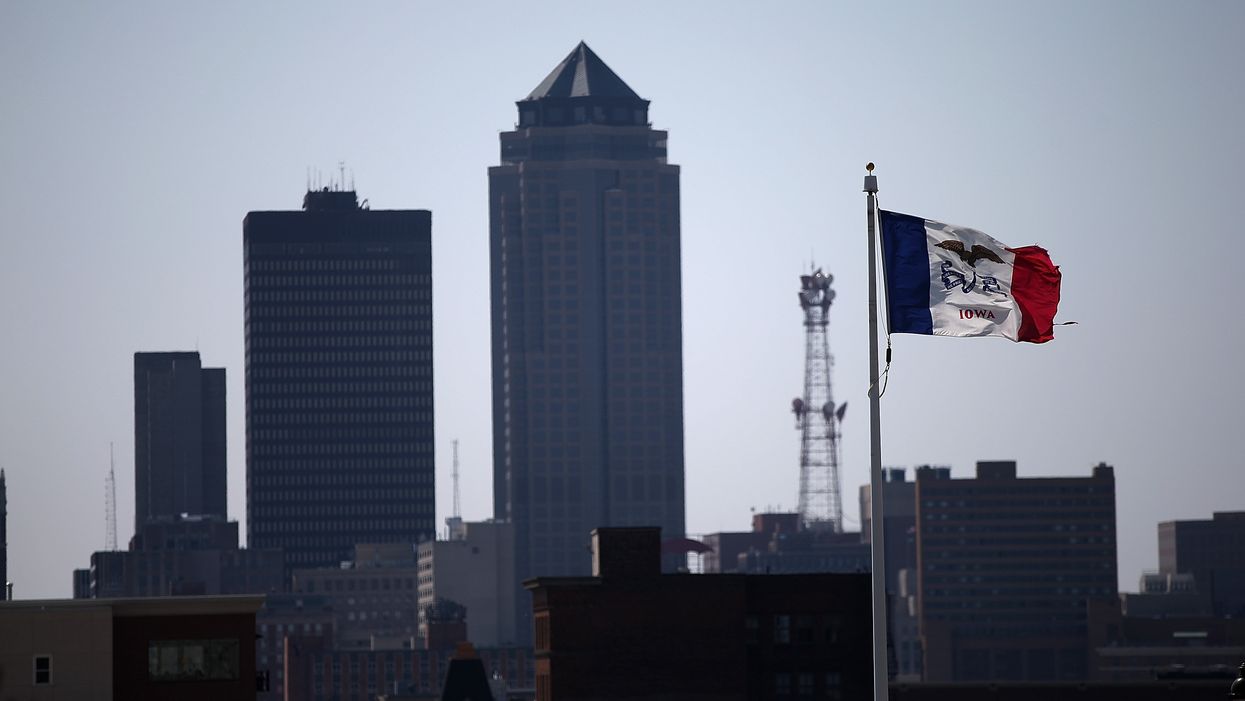Schmidt is a professor of political science at Iowa State University.
The first and most visible test of candidate support in the 2020 presidential election is the Iowa presidential caucus, which takes place on Feb. 3.
While Iowa does not control who becomes the candidate of each party, Iowans' choices almost always end up matching the rest of the nation.
One of the architects of the modern Iowa caucuses, which began in 1972, wrote that the significance of the caucus was unanticipated.
"Never in our dreams did we realize we would be 'first in the nation,' nor did we ever expect anyone outside Iowa would pay much attention," retired Iowa State University engineering professor Richard Seagrave wrote.
Seagrave said that it wasn't political calculation that led to the choice to run the caucus early in the election year. It was the "immense amount of paperwork" needed to document caucus proceedings with only a slow mimeograph machine that led to the choice of such an early caucus date.
"Remember that we had no 'user-friendly' computers or high-speed copy machines in 1972," wrote Seagrave.
The significance of first-in-the-nation placement did not become clear until a barely known governor of Georgia, Jimmy Carter, came to Iowa in 1976 to test the waters for a presidential run.
That year "Uncommitted" got 14,508 votes (37 percent). Carter came in with 10,764 votes (27 percent), but was declared the winner. He went on to get the nomination and win the presidency. The fact that a relative unknown – spending little money but lots of time and face-to-face campaigning – could win was surprising.
Before the modern system for choosing presidential candidates was invented, the mechanism since 1832 for nomination of presidential candidates has been a national political convention of each party. Voters in each state convention elect delegates to the national convention. A caucus is one way state party leaders pick whom to send, and whom those delegates should support.
Powerful political bosses, such as Huey Long from Louisiana, William "Boss" Tweed of New York, James Michael Curley of Boston and Tom Pendergast from Kansas City, had the real power in the 19th and early 20th centuries through their political organizations. Bosses offered services – housing, medical care, food, clothing – to people before government services became common.
A vestige of that political era lasted into the second half of the 20th century, when the actions of Chicago's longtime political boss, Democratic Mayor Richard Daley, led to a profound change in the presidential candidate selection process.
The 1968 Democratic convention took place in his city in the middle of a year of violence related to race and the Vietnam War. Riots disrupted the convention. Daley used his police force to crush the protests, then bullied delegates to vote to nominate his favorite candidate, Vice President Hubert Humphrey, even though Humphrey didn't win a single primary.
All of this was covered live on television. The violence and bias threatened to taint the Democratic Party. In response, the party created new rules for the presidential nominating process in an attempt to make it more systematic and transparent, as well as to encourage more participation by minority groups, young people and women roughly proportional to their numbers in states.
It was these reforms that launched Iowa's caucuses in 1972.
In 1976, the Iowa Republican Party followed the Democrats, and they began holding caucuses on the same early date.
That increased the visibility of the Iowa caucuses out of proportion to their actual numeric influence in the nominating convention, where in 2020 Iowa will send only 49 delegates out of the estimated total of 4,594 Democratic delegates.
On caucus night, registered Democrats and Republican voters gather at roughly 1,700 precinct meeting places. These have been schools, libraries, churches, fire stations and people's homes. In 2020, Democrats will also have satellite caucuses, some even held overseas.
There are speeches by supporters for each candidate who gather into groups for each candidate. The numbers in each group are counted.
For the Democrats, a candidate must have at least 15 percent of the all the participants in that precinct to be viable. Otherwise that candidate is declared "non-viable" and the supporters are asked to join another group or remain undecided.
Once the viable groups have been declared, a complex mathematical calculation determines how many delegates are allocated to each surviving candidate.
In Republican caucuses, attendees vote and the delegates are apportioned according to the statewide results.
The Iowa caucuses have become a well-watched political tradition because the media devotes so much attention to the candidates' activities in Iowa and then how they perform on caucus night.
Criticisms have emerged. Iowa's small and mostly white population has subjected the caucus to the charge that it is not representative of the nation as a whole.
A recent USA Today/Suffolk University poll attests to that concern:
A 57 percent majority agreed that holding the opening contests in Iowa and New Hampshire was a good system "because it forces candidates to talk directly to voters."
A 52 percent majority also agreed that holding the opening contests in Iowa and New Hampshire wasn't a good system "because the two states don't reflect the nation's diversity."
There is also a concern that caucuses are difficult events to participate in because voters must attend personally and at night. The turnout rate of eligible voters is low, hovering around 10 percent, while primaries normally have turnout of 35 percent or more.
In 2020, there is renewed debate about how Americans should select their candidates for president. Caucuses are now generally in disfavor, with many states moving to primaries.
One thing is clear. As American candidate selection evolved from the days of political bosses to today's caucuses and primaries, that process will continue to evolve.
This article is republished from The Conversation under a Creative Commons license. Click here to read the original article.



















